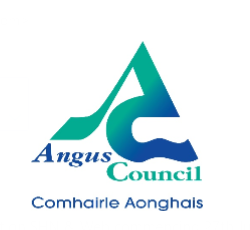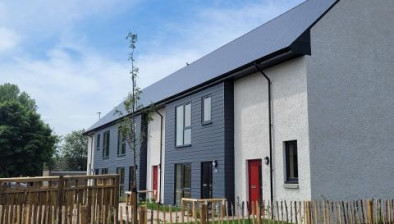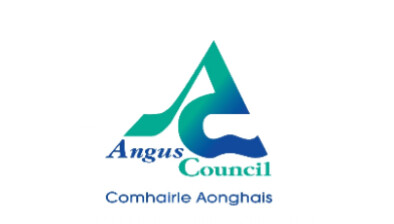Angus Council to consider budget proposals

Angus councillors will be asked to consider a range of measures proposed by the council when they meet on Thursday.
These include budget proposals which seek to meet a significant funding gap, while supporting those most in need and keeping costs to residents as low as possible.
At its meeting, Angus Council will hear that the council’s budget, in common with households, has been adversely affected by the rise in the cost of living, plus steep rises in inflation and energy costs. It will also hear that over the last decade there have been real term reductions in funding for existing core services from Scottish Government and increased demand for some services which support those in greater need. Recent announcements of additional government funding to support part of the cost of pay increases in 2023/24 is nevertheless welcome.
The council will be asked to approve, along with other council business, the updated Council Plan, Finance and Change Plan and Workforce Plan which collectively sets the direction for the council, its priorities, and savings plans.
Managing cost and demand pressures has been challenging for many years but the scale of the problem for 2023/24 is unprecedented and Angus Council, like many other councils, will require to use its reserves and contribution made from Council Tax to balance its budget. This year, the budget proposals include indications for a further two years (2024/25 and 2025/26). This enables strategic medium term planning to ensure longer term sustainability for the council.
Further, as a result of deliberate action to curtail spending plus a one-off accounting change now permitted by the Scottish Government, the Council has been able to significantly increase its reserves. Angus Council is proposing a five-year, seven point plan to make best use of its reserves to manage the phasing of some of the most radical changes it will need to make over a longer period.
Despite making savings over the last 10 years of more than £78m, and a Change Programme focused on delivering £26.4m over next three years, with £13.3m identified for 2023/24, the total funding gap now identified for 2023/24 is £26m. It is now projected that the funding gap over the next three years will be over £60m, an increase of £8.5m since the medium term budget strategy report in November 2022.
The Scottish Government grant which pays for 81% of the council’s costs is rising by £11.7m (4.7%) for 2023/24 to an estimated £261m. However, more than half of that increase is either ring-fenced or for specific additional spending commitments such as the 2022/23 staff pay deal, support for the social care living wage and the continued expansion of Free School Meals.
Council leader, Cllr Beth Whiteside, said: “These are extremely challenging times for the council, and we have had much to consider when setting this budget. As set out in our Council Plan (Report 20/23). Our first priority is to deliver financial sustainability for the council hence the desire to bring forward a prudent and fair budget for next year and an outline budget for the following two years.
“Secondly, we want to protect the most vulnerable people in Angus. It is not the most visible work that the council does, but for us, this is the most important duty of the council and must be our priority. We want children to have the best start in life; to improve the health and wellbeing of our citizens and to reduce inequalities across our communities.
“Finally, given the scale of financial challenges the council is facing, we will have to make some testing decisions which we know may be difficult to accept. The scale of the budget shortfall over the next three years means that some radical and extreme reductions to services are unavoidable but we will continue to do our best to limit the impact of the cuts having to be made.
“This budget represents a fundamental balance between dealing with the financial constraints, much of which is out with our control, and supporting citizens and planning for a positive future for Angus.”
The papers show the council’s plans to invest £3.1m of one-off uncommitted reserves in 23/24 on a number of high priority projects. They include a fund to support climate change, net zero and biodiversity projects (£1m); investment in roads and transportation infrastructure (£1m)and Arbroath Harbour (£100k); the continuation of our holiday food and fun programme (£200k); additional funding for Welfare Rights (£100k); continuation of funding for some of the LACER cost of living support projects (275K)and provision for education and lifelong learning risks (£350k) (report 57/23 refers).
Angus Council will also be asked to approve permanent funding (£169k) for the Glen Clova Project which focuses on addressing child poverty, delivering early support across a range of groups and partnerships to meet wellbeing needs.
The most significant capital investment is £56m for the new Monifieth High School which represents the largest investment that the council will make for many years to come. Other new capital projects are a modest £4.9m, including a programme of window replacements (£1.3m), vehicle replacements (£2m) and technology investment (£0.3m). The total planned capital investments programme up to 26/27 of £127m.
The proposed budget also contains an additional £3.3m for looked after children, with some of this (£1.5m) on a one-off basis. It also includes inflationary increases in charges for; Children and Families (£1.2m); unitary charges on PPP Schools (£1.1m)
It includes a recommendation to extend the suspension of car parking charges agreed at Angus Council on 12 September 2020, at a cost of £315,000 until a full and robust economic assessment is undertaken on the impact any charges may have to Angus towns as local businesses.
Councillor Bill Duff, finance convenor, added: “We understand that households are experiencing the same Inflationary pressures that the council is facing. Many families will be worried about their own financial stability, and we have considered this in our deliberations.
“We have proposed investment in several initiatives which support families with the cost of living crisis outlined above. Angus Council rents and Council Tax are already significantly below the national average and council has already agreed to keep our council house rents low with a modest 4% increase. The cost pressures on the services which are partly paid for from Council tax are however the severest ever seen and an increase in Council Tax is therefore unavoidable.
“We believe that we have produced a fair, prudent budget that puts Angus on a sustainable footing, balancing support for those in the greatest need, while creating opportunities for environmentally responsible growth and providing infrastructure improvements.”
Angus Health and Social Care Partnership (AHSCP) has incurred significant additional costs as a result of the ongoing effects of the pandemic. The draft budget currently proposes £68.8m to the AHSCP for 2023/24, which includes the expected Angus allocation of ring-fenced national funding for specific issues and budget pressures.
ANGUSalive, the arm’s length external organisation (ALEO) responsible for delivering the sports, leisure and culture sector was hit hard by the pandemic in 2021/22 and the impact continues to be felt on the generation of income from fees and charges slow to recover. Therefore, a management Fee at £4.322m is proposed which includes a savings expectation of £500,000, which is necessary due to financial pressures on the council.
Angus Council chief executive, Margo Williamson, added: “There is no doubt that this year’s budget process has been one of the most demanding I have experienced. I would like to pay tribute to our staff for identifying savings while continuing to deliver high quality services. Angus Council has experienced some of the most challenging times with the pandemic, storms, floods and more recently the cost of living crisis. This means we need to continue to adapt to help maintain services while driving costs down.”







